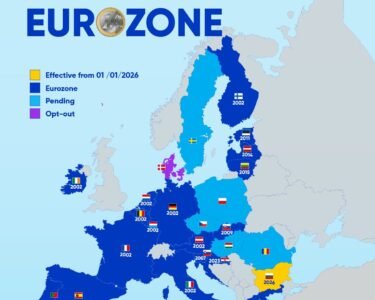Just a few more weeks and then the two centers in Shengjin and Gjadër will start functioning. One year after the agreement between Edi Rama and Giorgia Meloni, the hour of truth is approaching for the most original experiment ever attempted in Europe to handle a major part of the complex problem of illegal immigration.
The Italy-Albania model intrigues other countries grappling with the problem. London's newly appointed Prime Minister Starmer wanted to learn more. The British Labor leader and the Italian right-wing leader discussed it in Rome in an atmosphere of cooperation and without prejudice related to opposing political sides. This shows that if electoral instrumentalization on immigration is avoided, common sense can help the right and the left find reasonable common positions.
The United Kingdom had planned to do something similar when it was ruled by the Conservatives. But it had chosen a country in Africa, Rwanda, far removed from Europe and not exactly a model of democracy. President Paul Kagame has been in office since 1994, when the horrific genocide in which about 1 million people were exterminated ended, and he rules his country with an iron fist and a one-party regime.
Starmer rejected Rwanda's choice but did not soften the strong line against irregular immigration run by ruthless human traffickers.
"The model that the Italian government has envisioned, of centers to process asylum claims under Italian and European jurisdiction in a foreign country, had not been tried: if it works and I believe it does, everyone understands that there is a key to the element of deterrence to relying on criminals as well" This is how Giorgia Meloni explained the meaning of the Italian choice that has been much contested by oppositions and some newspapers that foreshadow apocalyptic scenarios, lagers , inhumane treatment etc.
A double prejudice persists: the first toward the Italian government, which, being right-wing, is imagined as having little respect for human rights: but the centers in Albania will have to comply with international, European and Italian norms that do not allow inhumane behavior.
The second prejudice concerns Albania. The distorted image of this country unfairly described as a state without rules, where violent clans dominate and the state is absent still persists. This is a series of falsehoods offensive to a people and a state friendly to Italy that instead deserves more respect from the Italian side. Albania is a much more solid and regulated democracy than people think. It is making great strides in moving closer to the more established models of Western democracies. The experiment desired by Meloni and Rama can be an opportunity to facilitate even institutional collaboration between two friendly countries that have in Europe and the Atlantic Alliance two important points of reference. And London's interest shows that Shengijn and Gjader's experiment could be replicated elsewhere.





